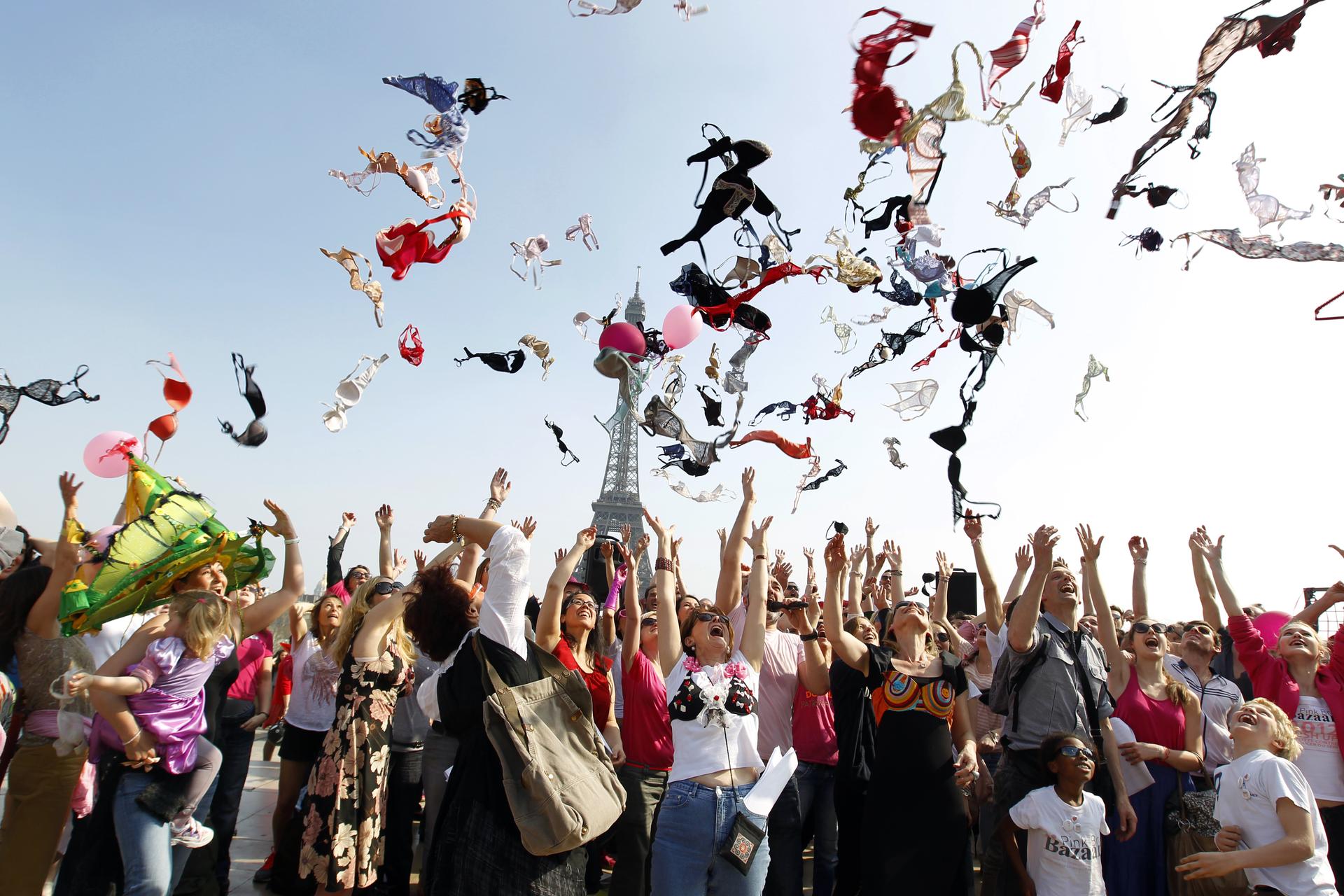‘Breast cancer’ reclassified into 10 distinct diseases (VIDEO)
Women throw up their bras on the Parvis des droits de l’homme (Human rights Esplanade at the Trocadero) in Paris on March 25, 2012, as they take part in an event organized by “Pink Bra Bazaar” association which campaigns to raise breast cancer awareness. At background, the Eiffel tower.
Breast cancer is not a single disease, but rather should be thought of as 10 distinct diseases, according to the scientists behind what is being hailed as a "landmark" discovery.
The finding will likely lead to more accurate, tailored treatment for individual patients, they said. Doctors might one day be able to predict survival more accurately in women.
Researchers examining breast cancer samples from 2,000 women in the UK and Canada for the study, published in Nature.
It was the biggest global gene study of breast cancer tissue ever performed, according to WebMD, with researchers hunting for genetic mutations that drive breast tumor development.
"Based on our results we've reclassified breast cancer into 10 types – making breast cancer an umbrella term for an even greater number of diseases," study co-leader Carlos Caldas, senior group leader at Cancer Research UK's Cambridge Research Institute and the Department of Oncology at the University of Cambridge, said in the press release, cited by CBS News.
"Essentially we've moved from knowing what a breast tumor looks like under a microscope to pinpointing its molecular anatomy — and eventually we'll know which drugs it will respond to."
More from GlobalPost: PIP founder Jean-Claude Mas jailed for failing to pay bail
Because hospitals often cast a wide net of tests and don't break down the kind of breast cancer further from their broad categorizations, treatments might not be as specialized as they could be, the researchers said.
However, the BBC quoted it would take at least three years for the findings to be used in hospitals.
According to the BBC, researchers compared breast cancer to a map of the world, saying that tests currently used in hospitals were quite broad, splitting breast cancer up into the equivalent of continents.
The latest findings give the breast cancer map far more detail, allowing you to find individual "countries."
"Breast cancer is not one disease, but 10 different diseases," the BBC quoted another study leader, Carlos Caldas, as saying.
"Our results will pave the way for doctors in the future to diagnose the type of breast cancer a woman has, the types of drugs that will work and those that won't, in a much more precise way than is currently possible."
More from GlobalPost: More from GlobalPost: Meet the people behind Turkey's 'miracle'
Every day, reporters and producers at The World are hard at work bringing you human-centered news from across the globe. But we can’t do it without you. We need your support to ensure we can continue this work for another year.
Make a gift today, and you’ll help us unlock a matching gift of $67,000!
